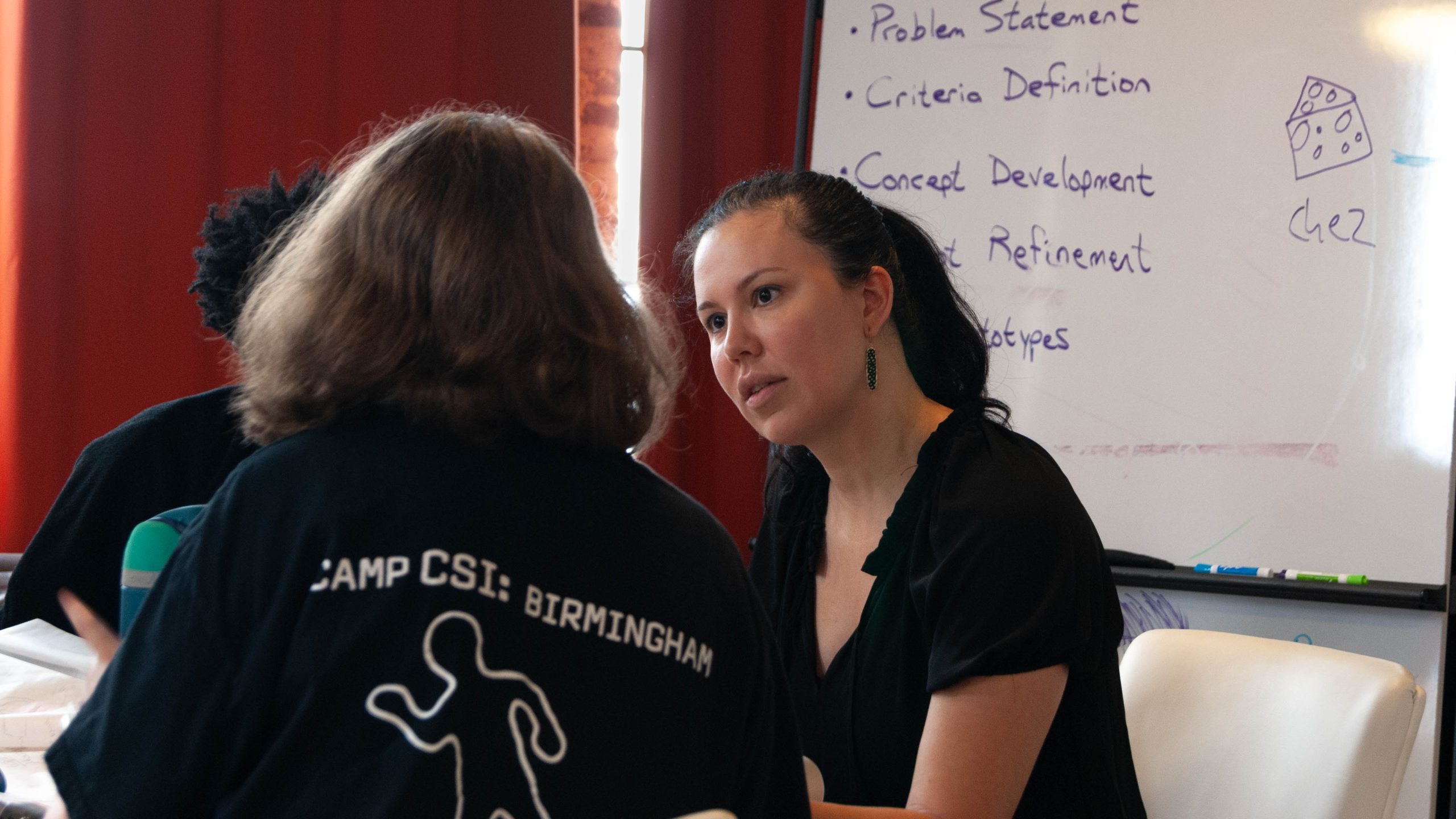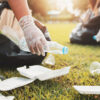|
Getting your Trinity Audio player ready...
|
At Hardware Park, an innovation and product development hub in Birmingham, eight high school students are learning to engineer and prototype medical technology in the two-week “MedTech Device Experience.”
In those two weeks, students have designed two main projects while working on side passion projects. The main projects are a new crutch with a structure that eases stair use and a wrist-wearable inhaler holder usable in sports.
Hardware Park Executive Director Mark Conner and Lloyd Cooper, principal of Push Product Design, one of the founding companies housed in Hardware Park, lead the experience and guide the students.
“Our goal has been to create the introductory experience into design and engineering that we wish we had had when we were in high school. While this program has been carefully tailored for a 2 week student experience, it builds off the same best practice models we use here at Hardware Park for our medical device clients,” Cooper said.
One passion project aims to design an appealing IV pole for home healthcare. CEO of Welcomed Co Christina Casanova Might helped the students to design with a customer in mind. In the medical sector such a vision realizes the importance of innovative medical technology.
Partly guided by the loss of her son at 12 years old, Might challenged the students to design an IV pole that would “bring light” to a young patient’s home and uplift spirits. Isaiah Williams-Scott, one of the students, suggested a tree design, and they ran with it. The group sketched out a plan to create a tree halfway between furniture and art that also happens to hold an IV.
“Isaiah, this is just what he thought of. And nobody in medical devices, nobody has Stryker and Medtronic have ever thought of that. Have you ever seen a tree in a hospital, you know, in the room?” Cooper said. “It’s the best way to learn: I’m gonna remove your crutch of your sphere because there’s no place for it. Like, you’ve got to go build this thing, and so it frees you up. It’s very freeing.”
Given the substantial medical industry in Birmingham — the UAB system, Children’s of Alabama, St. Vincent’s, and others — Conner thought talented engineering students would benefit from early experience with medical technology prototypes.
“There’s no shortage of really bright people doing medical research and medical practice, who would have ideas for improvements or products or new products that could come to market. But there’s a big gap between ‘I’ve got an idea’ and ‘I have a prototype.’ Really, with medical devices, until you can get to that functional prototype that really demonstrates that this works, you can’t go to the next level,” Conner said.
Conner was the director of engineering at Hoover High School until his retirement last year. Using his education experience and faculty recommendations, Conner identified talented students at Schools throughout the Birmingham Metro area.
“We weren’t sure, honestly, I mean that this was an experiment within an experiment because we’re putting kids together that don’t know each other. We’ve never done this with high school students; we didn’t know what to expect,” Conner said. “Pretty much every day, we looked at each other and said “Wow.” I mean, they’re doing this. They’re coming up with good ideas.”














































